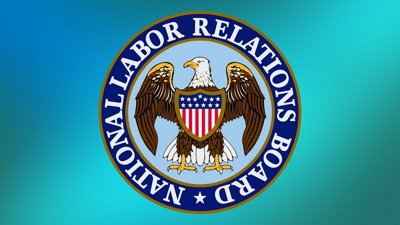When Apple Chief Executive Tim Cook testifies before the U.S. Senate this week, he will make his case for comprehensive corporate tax reform, arguing that the current tax system actually undermines the competitiveness of American companies.
Apple's push for tax reform was revealed in the company's written testimony, which was published on Monday. The testimony will be formally presented by Cook to the U.S. Senate Permanent Subcommittee on Investigation on Tuesday.
Apple Chief Executive Tim Cook will testify before the U.S. Senate and propose sweeping tax reform on Tuesday.
In his testimony, Cook will make the case that the current tax code was written for the "industrial era," and those concepts are unfairly being pushed on the current "digital economy."Apple admits that its proposed changes could lead to higher taxes for the company, but it's willing to accept that if it results in a fairer tax code that will improve "efficiency, flexibility and competitiveness."
"Apple has always believed in the simple, not the complex," the testimony reads. "This is evident in the company's products and the way it conducts itself. In this spirit, Apple has recommended to the Obama Administration and several members of Congress — and suggests to the Subcommittee today — to pass legislation that dramatically simplifies in the U.S. corporate tax system."
As part of its proposal, Apple will suggest four key points that the company believes comprehensive tax reform should include. Those points are:
- Be revenue neutral
- Eliminate all corporate tax expenditures
- Lower corporate income tax rates
- Implement a reasonable tax on foreign earnings that allows free movement of capital back to the U.S.
The goal of the recommendations, the company says, is to create "meaningful change" in the U.S. tax code. Apple has asserted that its suggestions "go well beyond what most U.S. companies propose."
"As both a pioneer and a participant in the American innovation economy, Apple looks forward to working with the Subcommittee on its efforts to encourage comprehensive reform of the U.S. corporate tax system," the official testimony reads. "Apple appreciates the opportunity to appear before the Subcommittee to contribute constructively to this important debate."
Apple's proposals come as the company is under government scrutiny for its large sum of cash kept overseas. As of the end of the March quarter, Apple had about $100 billion stashed overseas, and the company made clear it has no plans to repatriate that cash under current U.S. tax laws.Apple has asserted that its suggested tax code changes go "well beyond what most U.S. companies propose."
In its testimony, Apple lays the case as to why it believes it is currently following the government's tax laws without relying on so-called "tax gimmicks," such as holding money on a Caribbean island or having a bank account in the Cayman Islands.
When he appears before the Subcommittee, Cook also plans to argue that Apple is likely the largest corporate taxpayer in America. Apple paid nearly $6 billion to the U.S. Treasury in fiscal 2012, and expects to pay $7 billion this year. Apple has said these payments account for $1 in every $40 in corporate income tax the U.S. Treasury collected last year.
For these and other reasons, Apple is asking legislators to consider its suggestions for a massive overhaul of the U.S. tax code. In its testimony, the company even acknowledges that these changes may increase Apple's corporate taxes.
"Apple is not opposed to such a result if it occurs in the context of an overall improvement in efficiency, flexibility and competitiveness," the company said. "Apple believes the changes it proposes will stimulate the creation of American jobs, increase domestic investment and promote economic growth."
 Neil Hughes
Neil Hughes





-xl-m.jpg)


-m.jpg)






 William Gallagher
William Gallagher
 Amber Neely
Amber Neely
 Andrew Orr
Andrew Orr



 Christine McKee
Christine McKee
 Chip Loder
Chip Loder








34 Comments
You know what would be better than a "feature" that just re-iterates word for word everything apple said today on taxes? Actually explaining what it means, providing some background, defining terms etc. If you could do this stuff (I'm going to call this "research" for now), then you could tell us about it later (let's call this "reporting"), and it would be a comprehensive writing (usually referred to as an "article"), that would engender so much of feedback and discussion you might even be able to call it a "feature report" (or "feature" for short). Wait a minute … scratch all that. It's a good idea but I looked it up on the wiki and someone's done it first. (who knew!) Apparently lots of folks do it and it's referred to as "journalism" or "reporting."
brilliant comment from gazoobee.
The simplest, easiest fixes would be to: (i) Move to a territorial (not worldwide) system of taxation of non-home income (like most of the rest of the world); (ii) Lower the top rate 25% or less (like most of the rest of the world); (iii) Get rid of the stupidity that enables companies to keep/report one set of books for reporting (SEC) purposes and another for tax (IRS) purposes (like most of the rest of the world).
Btw, AI, what the heck does Apple's second point, "eliminate all corporate tax expenditures" mean?!
[quote name="anantksundaram" url="/t/157614/inside-apples-push-for-comprehensive-corporate-tax-reform#post_2330111"]The simplest, easiest fixes would be to: (i) Move to a territorial (not worldwide) system of taxation of non-home income (like most of the rest of the world); (ii) Lower the top rate 25% or less (like most of the rest of the world); (iii) Get rid of the stupidity that enables companies to keep/report one set of books for reporting (SEC) purposes and another for tax (IRS) purposes (like most of the rest of the world). Btw, [I][B]AI[/B][/I], what the heck does Apple's second point, "[B]eliminate all corporate tax expenditures[/B]" mean?! [/quote] Tax expenditures—special exemptions and exclusions, credits, deductions, deferrals, and preferential tax rates claimed by corporations, individuals, or both—support federal policy goals but result in revenue forgone by the federal government. To the layperson,I reckon that means, special treatment for some based on government doing commerce engineering instead of just keeping commerce regular. Edit - Definition above is the IRS's version. I shudder when I see the words "claimed by corporations" as if they weren't created by lawmakers. One Congress's tax expenditure = another Congress's "Corporate Welfare".
IRS heads need to roll.
If there's anything that needs further investigating, it's the criminal activities being perpetrated by the IRS gestapo.
What a waste of time that hearing is going to be tomorrow. Apple hasn't done anything illegal, unlike the IRS. Current tax laws are a joke, and Apple has no obligation to repatriate overseas money until those moronic laws are changed and fixed.